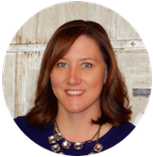Stephen R. Covey's #1 Habit of Effective People is Be Proactive. Sounds easy, right? As a mom, I can pull anything out of my purse at a moment's notice. Tweezers? A band-aid? Snacks, anyone? Let's make a deal!
For Covey, it's less about stuff and more about mindset. Proactive people realize that everything in their life is a choice. They can choose to be happy or sad, successful or a failure. They are highly responsible for everything in their lives, both personally and in their role at work.
These highly-effective managers approach things differently and are catalysts for change. They come from a place of "there's always a way to get it done" because they have chosen to be that way.
Consider your own mindset. Do you have a tendency to blame things you cannot control? "We haven't made our numbers because the market is bad... They don't know what they're doing up there... I don't have the budget..."
Consider these 3 things the next time you find yourself thinking in a reactive way:
See Alternatives, Not Roadblocks
Covey states this simply as "use your R and I" (Resourcefulness and Initiative). Find a way. Consider these questions:
1. Now that we know what we can't do, what can we do?
2. Let's pretend this has to be done or the world will blow up. What would we do?
3. Maybe we just haven't talked to the right people yet.
This is a great exercise to do while brainstorming your Company and Individual Priorities!
Focus on What You Can Influence
Focus efforts on what you can actually do something about and don't succumb to the victim mentality. Again, this is a choice you have to consciously make. There are things you can control (health, people, process) and things you can't (market conditions, budget restraints). Focus energy and efforts on things you can impact.
This is also a great reminder to keep discussion focused at your planning sessions!
Expand, Don't Limit, Your Resources
Brainstorm how to break barriers to achieve results. Covey's tool is the Hidden-Resource Finder. In short, you write your challenge in the middle of a circle on a whiteboard. Then, you consider four key areas: People, Knowledge, Budget and Technology/Tools. Below are some questions to ask for each area:
People:
- Who could help us?
- Who has interest or goals that are aligned with ours?
- Whose view of this challenge is totally different from ours?
Budget:
- Suppose the existence of the entire organization depended on this project. What would we do to get the budget?
- What partnerships could we form to get the budget?
- What kind of business case do we need to make that would persuade people to give us the budget?
Knowledge:
- What don't we know that we need to know?
- If we could ask anyone in the world about this, whom would we contact?
- What's the best source of information on this subject and how do we get to it?
Technology/Tools:
- What tools and technology do we need and have access to?
- If we had our choice of technology, what would we use?
- Who has it? What's in it for them to provide us use of it?
This is also a great way to approach an issue during your strategic discussions at your planning session! Change your mindset to change your results.


